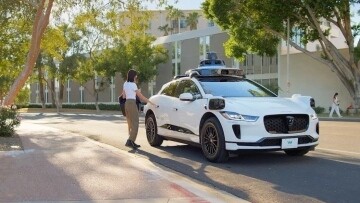
Waymo, the self-driving vehicle subsidiary of Alphabet, Google's parent company, has set its sights on solidifying its position as a leader in the U.S. autonomous taxi market. The company aims to achieve this by expanding its operations to new cities. Currently, Waymo's driverless taxis are carrying out over 150,000 passenger trips each week, covering more than one million kilometers without a human driver behind the wheel.
The autonomous taxi service is already operational in San Francisco, Los Angeles, Phoenix, Austin, and, most recently, Atlanta. Waymo has not disclosed which cities it plans to expand into next, focusing on enhancing its presence in the market. Sundar Pichai, CEO of Alphabet, highlighted how Waymo vehicles have seamlessly integrated into daily life in Austin and Atlanta, attributing this success to the partnership with Uber Technologies.
In a competitive move, Tesla CEO Elon Musk introduced a prototype of a fully self-driving electric vehicle designed specifically for taxi use. Musk envisions starting production of these vehicles in 2026, with a target of two million units annually. Despite Musk's long-standing promise of a self-driving electric taxi, Tesla's current models still require a human driver to be present, relying on driver-assistance systems.
On the other hand, Waymo's autonomous taxis operate without any human intervention, showcasing a higher level of automation. However, the cost of safety technologies, including advanced sensors like laser-based radar for comprehensive environmental scanning, results in high production costs for Waymo. Overcoming these cost challenges has become a priority for the company, which aims to develop a more cost-effective advanced driving system to improve profitability in both production and operation.










